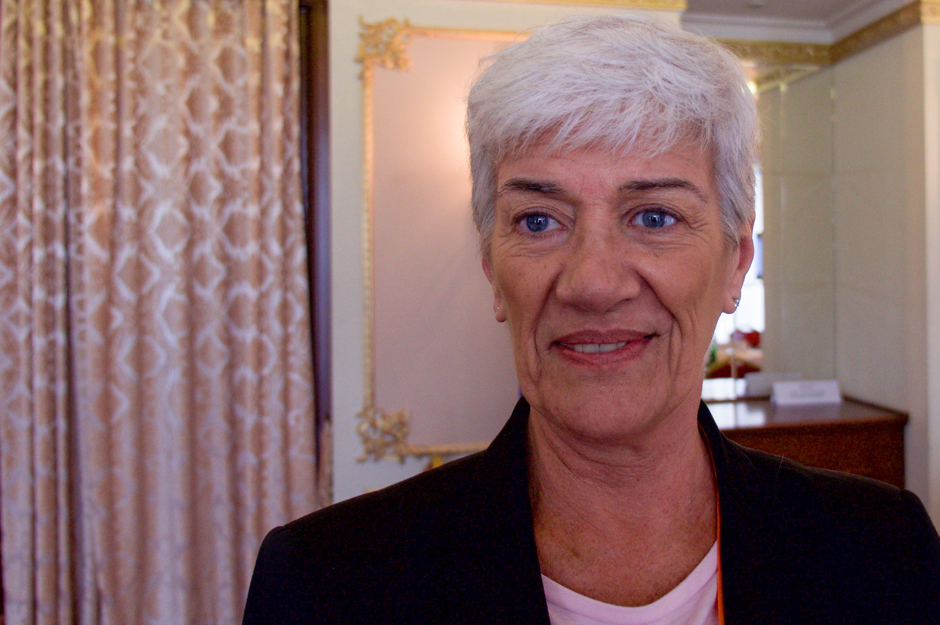Milan Antonijević, Director of Yucom, commented: “The consultation shows that in Serbia we can gather with our colleagues from many countries – more than 50 judges and lawyers will be with us – to talk about the issues. It gives us a new perspective; it gives us the possibility to follow up after the visit with the Special Rapporteur and to talk freely and more intensely with our governments and governments in the region. We think that after this gathering we can respond to many of the challenges and that our voice will be stronger.”
Sonja Toskovic, Legal Officer at Belgrade Centre for Human Rights stressed the importance of the consultation: “It is a great honour to have the Special Rapporteur in Belgrade. It is a big chance for advocacy for the Human Rights House, and to present the importance of the Special Rapporteur and the mechanisms that she can bring to us and that we can use. This consultation, and the idea to bring the Special Rapporteur together with lawyers from the region, and from the Human Rights House Network, it is very good and very important. It is the first time as far as we know that we have this kind of consultation with the Special Rapporteur. It’s a great advocacy tool, and it’s a great opportunity to use her as a mechanism for improving the judiciary system in Serbia and other countries.”
Antonijević stressed the importance of giving input to the Special Rapporteur, focusing on the report she will submit to the UN Human Rights Council in October: “The report will shed new light on the common interests of the region, of Western Balkans, Caucasus, and all the countries that we will be gathering in the Belgrade… We expect recommendations, concrete issues that our governments can tackle, and to really change the situation, change the role of government interfering in the judiciary, endangering some of the lives. We expect it to press governments to investigate attacks on lawyers and judges, and to really have the effect of protection for those that are fighting for Human Rights.”
“When you analyse the attacks against judges and lawyers, all of those attacks have a domino effect on all securities and human rights, not just that colleagues, lawyers and judges, have additional fear for their work and then really close themselves into the boundaries, but also it reflects on citizens and on their enjoyment of human rights. If you don’t have anyone who is capable of defending you, or you have to be brave in order to be the lawyer of someone whose rights are violated or to raise some of the issues, this is the situation in which human rights are failing,” Antonijević continued.
On the importance of a cross-border community of lawyers, Antonijević said: “It is important to exchange experience of how lawyers and judges and their independence is endangered. This will show the patterns in the region, whether there are some that we can combat together. The interests are the same.”
Toskovic concluded: “It is good to have these consultations where you can meet colleagues from the region and from the Human Rights House [Network] – to see their strategies, their ideas, their good practices, also their bad practices. You can see ideas you can implement in your strategy and in your work, and of course you can exchange ideas.”
The consultation has been organised by: Human Rights House Network; Yucom, Human Rights House Belgrade; the International Bar Association, and the Office of the United Nations High Commissioner for Human Rights (OHCHR).
HRHN at the consultation
HRHN is live tweeting from the discussions and will follow up with an article reporting on the discussions and detailing the recommendations made to the Special Rapporteur.
Special Rapporteur mandate
Mónica Pinto was appointed as the UN Special Rapporteur on the Independence of Judges and Lawyers in 2015. Her mandate will last until 2018. She will submit a report to the Human Rights Council on the global situation for the independence of judges and lawyers in October 2016.





